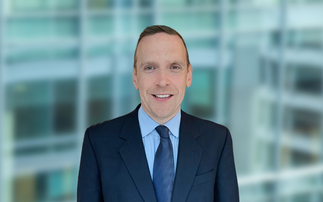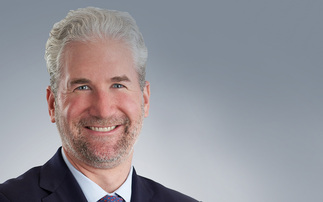The third chapter in the series from Standard Life Investments looks at the macro and market outlook in emerging markets for 2015.

From Standard Life Investments, our panel includes fund managers Mark Vincent, and Alistair Way as well as economist Alex Wolf. I am also joined by John Thornber from Andrews Gwynne Private Wealth Management, Hong Li from Gracechurch Wealth Management and Emma Black from Tier One Capital..
Last year was year for the emerging market performance and flows. What do the next 12 months hold?
Alex Wolf: I think growth will moderately improve over 2014. The biggest thing to look this year will be politics and geopolitics.
If you look across most major emerging markets, from India to China, they are either in the process of implementing reforms or deeper structural changes and the biggest impediment in a lot of cases is the political process.
In India for example, a key area is how they are trying to reform land and labour and taxes, while China is going through some very large reforms in terms of liberalising state-owned enterprises and the anti-corruption crackdown. Politics are going to play a very large role in 2015, both good and bad.
Mark Vincent: A lot of these concerns are reflected in prices and you see that when you look at emerging versus developed market valuations.
While some of the headwinds from lower oil prices have been put into consensus forecasts, the benefits of lower costs and improved margins for other companies are probably yet to be factored in. For us though, our approach is very much bottom-up stock picking - it's whether can we find stock ideas we are excited about and there is no shortage of ideas in terms of technological change and various ways of playing the reforms, in India for example, that are quite interesting.
Alistair Way: It will be another exciting year, as it always is in emerging markets. We are fairly confident correlations across emerging markets will continue to be low and it has evolved from a binary risk-on/risk-off asset class to a much more subtle and discerning market where companies and sectors changing for the better are rewarded positively by the market.
Because expectations are so low, any change you get can lead to very positive returns - India and Indonesia last year show that.
Emma, how big a part of client portfolios are emerging markets now?
Emma Brown: We operate a core and satellite approach and see emerging markets very much within the satellite element, where we are looking at a more alpha-driven investment.
We are keen to look at emerging markets at country level so for the likes of Russia and Greece and economies exposed to geopolitical risks or the fall in the oil prices, we would tend to move away from those. On the other side, we would allocate more towards countries such as India and Indonesia, which are seeing political reforms and seeing benefits from the fall in oil prices.
John Thornber: The most important thing for us is to find good active management because what we notice is that the indices have been made of big energy and commodity producers, both geographically and on a company level.
We want to find managers looking at proper bottom-up opportunities because that is where the real growth is. Whether new technologies, the domestic consumer or export opportunities as the dollar strengthens, it is about finding managers who can identify companies exposed to those themes rather than just allocating X amount to emerging markets.
Hong Li: Most of the portfolios we run for clients have a low allocation to emerging markets. We have found it difficult to pick active managers that consistently outperform because the market is so diverse. What we have done is pick index trackers and then overweight areas such as China where we feel there is a bit more growth.
We currently have tailwinds from lower oil prices and headwinds from a strengthening dollar. How do those two play out - will they offset each other?
Alex Wolf: They are definitely two big movers. In terms of how they affect countries, you have to look at it on an individual basis as the two forces will not necessarily cancel each other out.
Taiwan for example is an oil importer but will also benefit from stronger US growth as an exporter, so gains from both.
Mark Vincent: To a certain extent on the dollar, it depends how rapid and large the move is. The idea we are in a stronger dollar environment is a consensus view and therefore, should to a large degree be reflected in asset prices and not really surprise anyone.
If you have that stability of outlook, then stock picking has a chance to come to the fore.
When it works the other way and you get a big move in the dollar or any macro variable that the market is not expecting, that dominates for a period of time, like we had with the oil price last year. It depends very much on the speed of the movement.
We saw a lot of change last year with reform-minded governments elected in India and Indonesia. How important is that kind of reforms and how does it affect your view on countries to invest in?
Emma Black: There's an abundance of research that says politics is important in every market and in emerging markets, it's particularly important in regards to levels of corruption, transparency and security for shareholders. For us, it's incredibly important to look at the outlook of the government and what they are trying to implement and we see the opportunity in India for example with the sustained investment into the rail and transport, where they are actually putting money behind what they have outlined.
John Thornber: These are long-term secular trends but are not happening overnight. So although we see companies providing IT to schools for example, it's what that produces down the line in terms of an improved skillset for the workforce. It's how long the infrastructure takes to improve the transport networks and speed up the economy.
That's why when you're looking at emerging markets, you've got to focus not on the returns this quarter or next, you've got to look at the longer term. If you've got a client with twenty or thirty years to retirement, you can use emerging markets as a core because these long-term secular trends are not going to change.
Mark Vincent: There are some staggering examples of what reform can mean in practical terms. If you take the sales tax being talked about in India for example: if you imagine a situation where you've got a yarn producer and a garment producer, it would take between 55 and 65 hours to get the yarn to the garment maker in India because every state it passes through, you've got to sit in a queue and sign a tax bill. Taking that away would be massive for productivity.
Hong Li: Whether in a democracy or a more closed society like China, you need stable politics for anything to be done on a serious level. Clamping down on corruption is a very positive thing - at the end of the day, it's about strong corporate governance and the government to back it up.
In terms of positioning, do you stay in the more expensive, dependable consumer sectors or do you feel it's worth taking a chance and rotating into some of the stocks that look particularly cheap in commodities?
Mark Vincent: We go where we feel there is mispriced change. So, a company that is very cheap but there's nothing changing is not interesting to us. Just being cheap is not enough, neither is good quality or high growth either if that is fully priced in.
We are looking to identify change the market has not spotted yet, which we believe is going to be a key share price driver.
Hong Li: It's always a dangerous game to play when you rotate in and out of sectors. As long as you stick to your fundamentals and do your research, it should play out in the share price.
Alistair Way: It feels like the gap between emerging market sectors perceived as quality and those not is higher than it has ever been and higher than anywhere else in the world. There has been a lot of clustering in perceived safe havens , such as a relatively small number of expensive consumer stocks, but starting from this valuation gap, it could be a quite a risky approach.
There is a lot of good news priced into a relatively small subset of emerging markets and you need a flexible approach to pick up positive change across the spectrum.
John Thornber: If you want to chase relative returns, sector rotations are important. But my view is that investing for the long term is not a question of relative performance but whether a company is going to grow.
From our point of view, we want to see managers who are as unconstrained as possible and buying when the opportunities are there.
Mark Vincent: You can do an exercise where you disaggregate returns and say how much of a stock's performance comes from country, sector or stock-specific factors. What we have seen happen in emerging markets over time is the country factor has gradually come down and the sector factor has gradually gone up but stock specifics massively outweigh either. That speaks to the way we do it, which is starting with the companies, meeting as many as we possibly can and finding the ones where things are changing.











